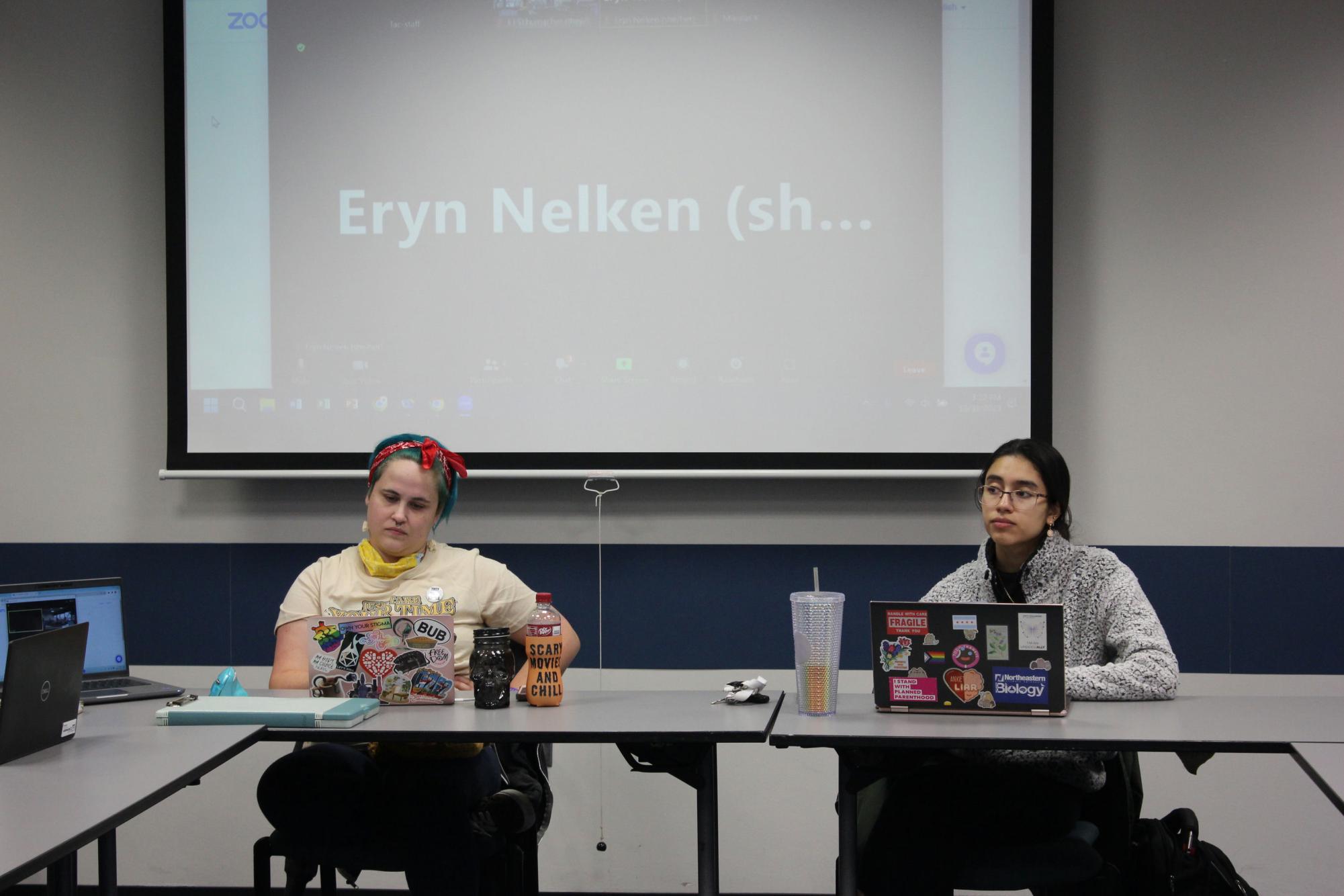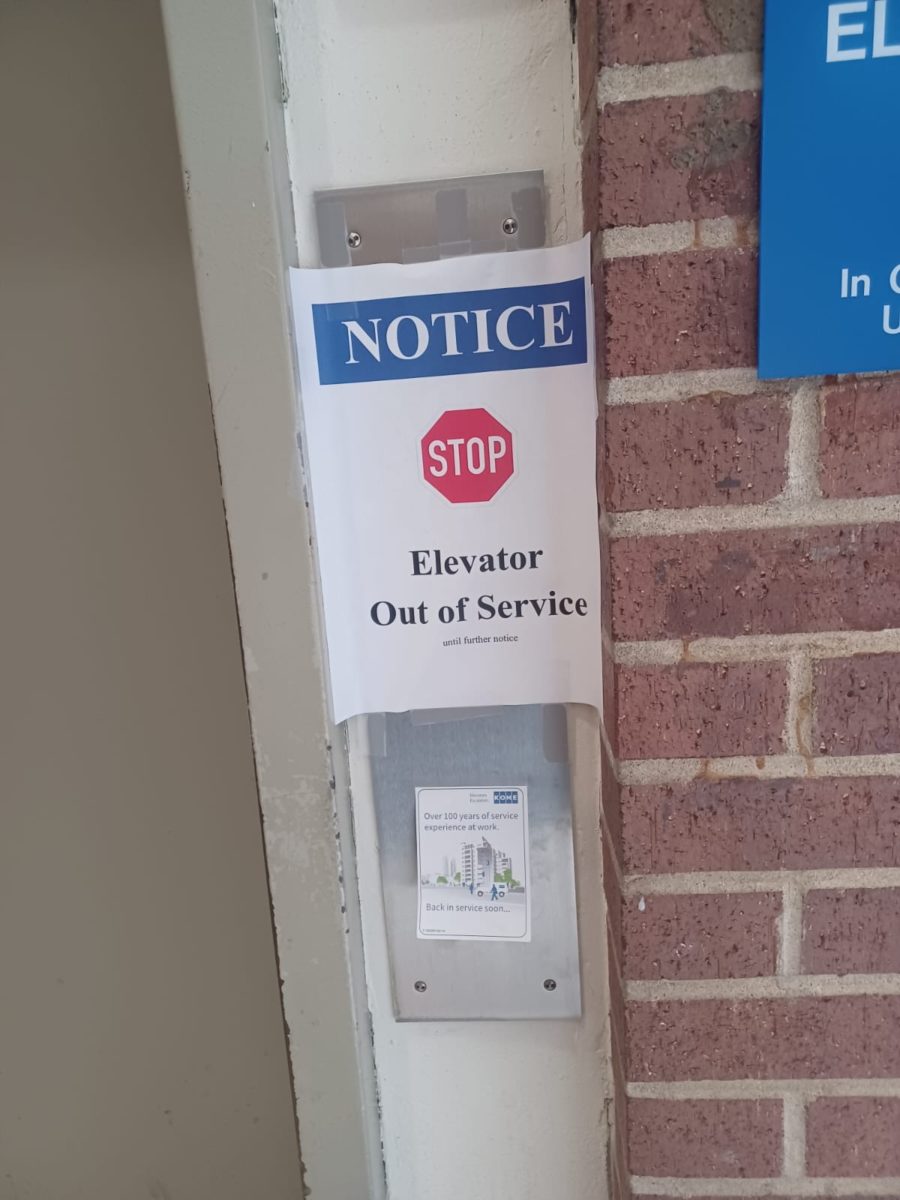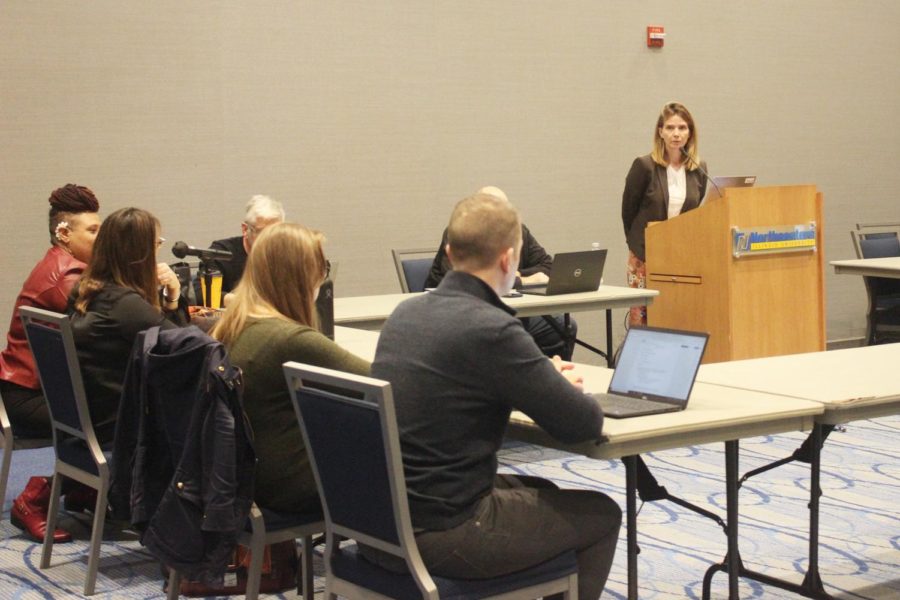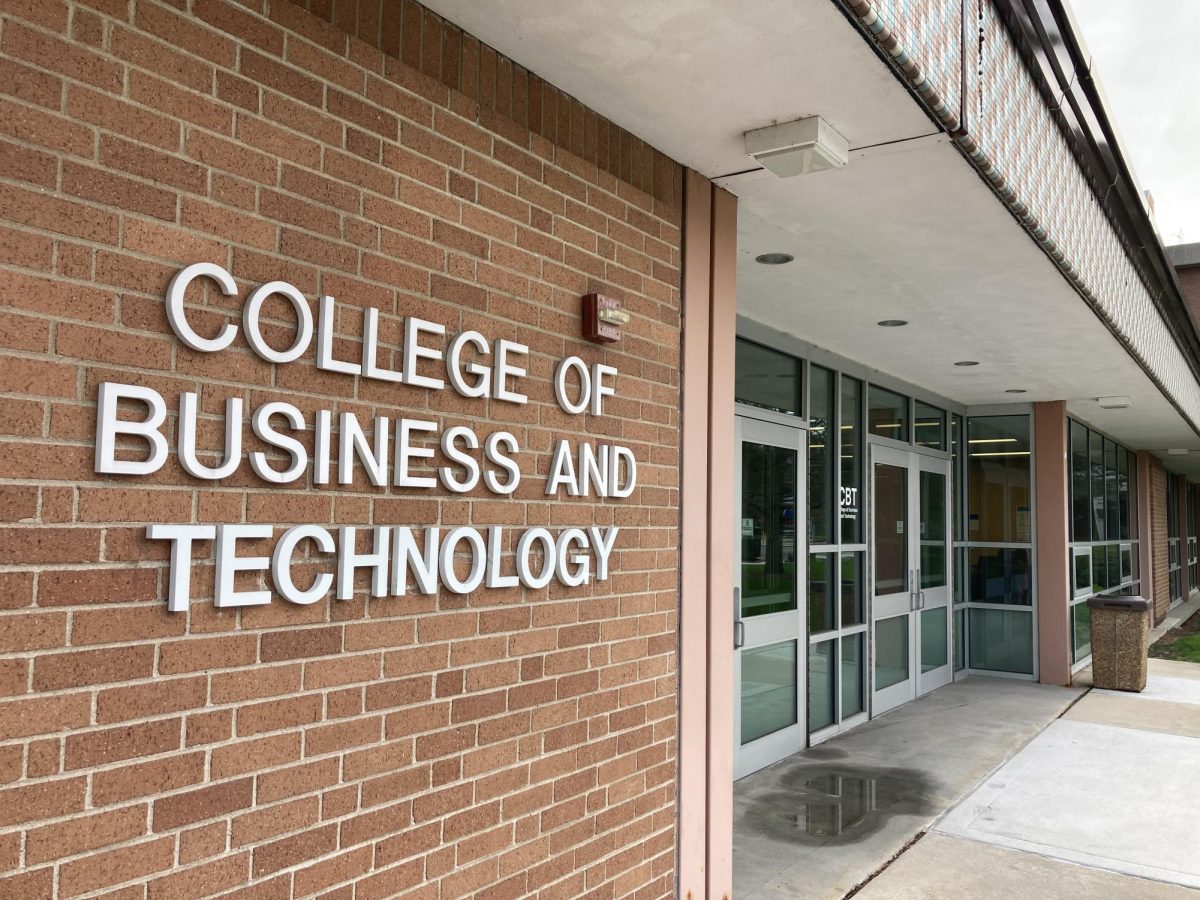As previously reported by the Independent, the potential increase in tuition is still an ongoing issue. NEIU’s Student Government Association (SGA) held an emergency meeting on Tuesday, Oct. 31 to continue discussion.
During the meeting, SGA passed two resolutions. The first resolution opposes the proposed Fiscal Year 25 general student fee* increases and the second resolution opposes the proposed Fiscal Year 25 general tuition* increase. Both were sponsored by SGA President EJ Schumacher and co-sponsored by Student Trustee Edwin Medina.
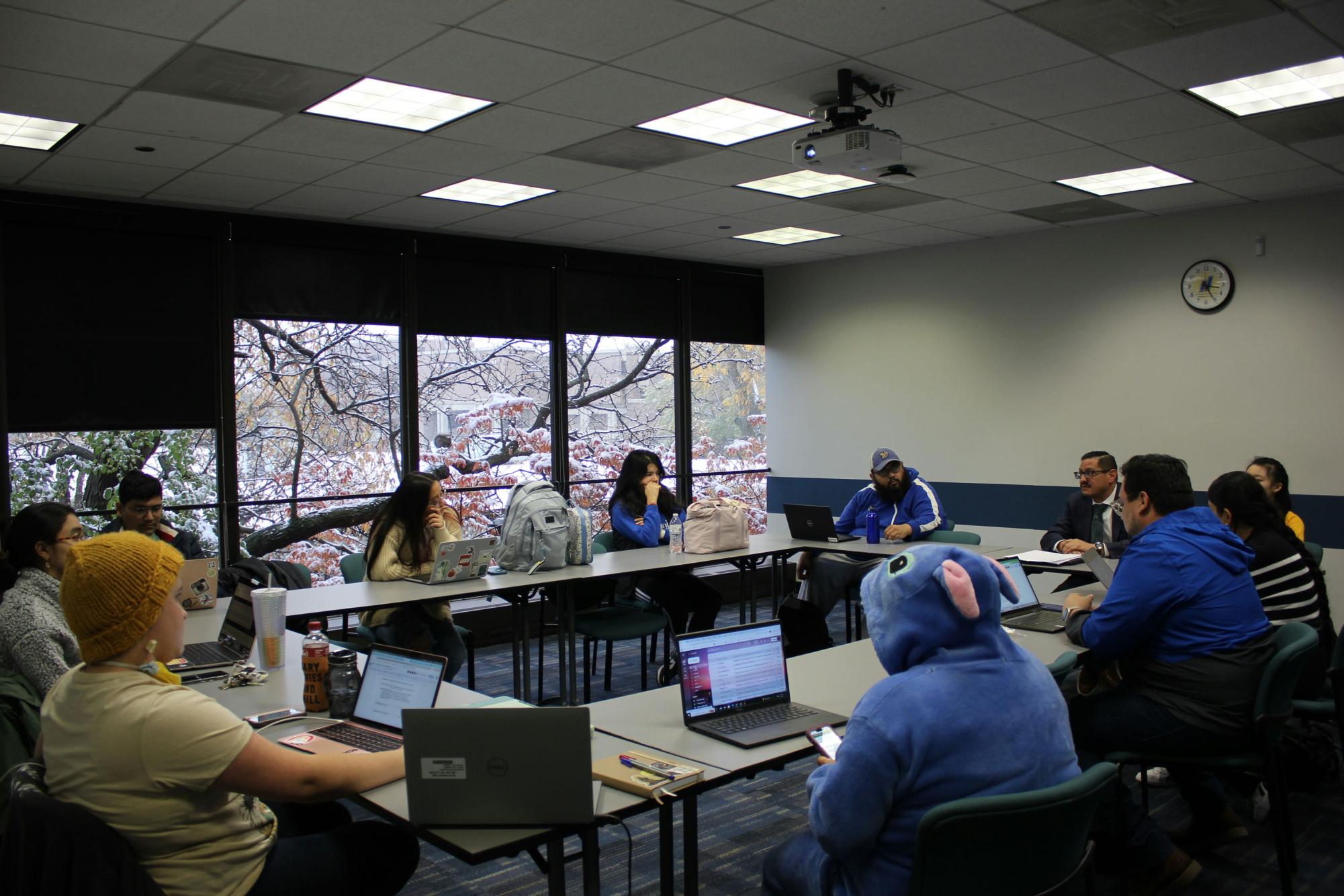
* An increase in fees paid by students is separate from an increase in tuition — both, neither, or just one can happen. Once SGA passes a resolution, it is brought to the Board of Trustees (BoT), the highest level of governing in the school. The BoT has the final say on whether any increases will be implemented and which increases will be put into effect.
SGA advisor Veronica Rodriguez began the discussion, saying,“When I first started as a director, I was allocating 242,000 credit hours. This past year, I’ve been asked to allocate 110,000 credit hours…that’s a huge drop.”
Currently, the fee charged to students is $85 per credit hour, while the proposed fee for FY25 is $89.25 per credit hour. The fees are divided among ten different groups, including the green fee, computers, library, health services, and student activity, all of which Veronica explains “have a direct impact on the programming, what they can do…what they can purchase…how much we’re able to allocate to.”
The current tuition is $430.95 per credit hour, while the proposed tuition for FY25 is $443.88 per credit hour. Immediately after Schumacher read the bill, a senator asked, “Didn’t they do this last year as well? And didn’t they say they weren’t going to do it this year?”
“You can’t keep increasing tuition,” Medina said. “I get it, it’s easier for us…to put the burden on someone who’s not sitting at the table with us right now.” Moreover, it’s also important to consider how increasing the tuition might affect NEIU’s future enrollment.
He asked others in the room to consider the issue from a student’s perspective. When comparing college affordability, NEIU has potential to gain more attraction, even if tuition is cheaper than competing universities by $2,000. “Besides increasing tuition, there’s other things that we could do that can cut costs…other universities are also increasing tuition…But that doesn’t mean that just because everyone else is doing it we’re doing it…I don’t think that’s valid enough.”
Dr. Terry Mena, Vice President of Student Affairs and Dean of Students, expressed concern over how cuts have impacted staff. “I’ve been here three years, I’ve had to cut the budget for Student Affairs, three years in a row…We have cut staff, we have cut down positions, we have downgraded programming dollars, we have ended service type of contracts, try to weed out as much of duplications of services…” However, this process of cutting also proved to be beneficial. After ending a contract with duplicate software for student surveys, Dr. Mena remarked “[it] saved us about 40k or more.”
Schumacher added that the key issue is to strengthen enrollment, not to continuously increase tuition and fees. “While the university is clearly aware, and President Bell-Jordan is aware, that that is a serious issue, I don’t know how effective the university is in accomplishing their retention and enrollment goals.”
Dr. Mena responded, “In full transparency, we have not.” He credited Irma Ortiz, the new Interim Associate Vice President of Student Success and Retention, with setting a bold goal of an 80% retention rate. This initiative includes understanding why students are leaving and evaluating the effectiveness of success programs and Living Learning Communities (LLCs) in retaining students. He addressed the university in having a responsibility to help achieve this goal, and part of that responsibility is “making sure that we’re taking the deeper dive on understanding student experiences.”
The meeting concluded with a vote on both resolutions.
The resolution opposing tuition passed unanimously.
The resolution opposing student fees increase passed with three in favor and three abstained.
Other Business:
- There were two resignations: President Maggie Sabanagic and Illinois Board of Higher Education Student Advisory Committee (IBHE-SAC) representative Kevin Baez.
- Effective immediately, Vice President EJ Schumacher was sworn in as President and Secretary Daniela Navarrete as Vice President. This has left the SGA Secretary and IBHE-SAC representative positions currently vacant–both positions that SGA plans to fill as soon as possible.
- The resolution to give mental health days to university students has officially been brought to the state, and further discussion is in the works.
- Student Health Services is currently offering vaccinations for students and employees, including COVID-19. Appointment required; see “Seasonal and routine vaccines for students and employees” email sent out Thursday, Oct. 26 for details.
The SGA meets in Student Union Room SU 215 at 3 p.m. on Tuesdays (bi-weekly), the next one being Nov. 21. Meetings are open to the public.

